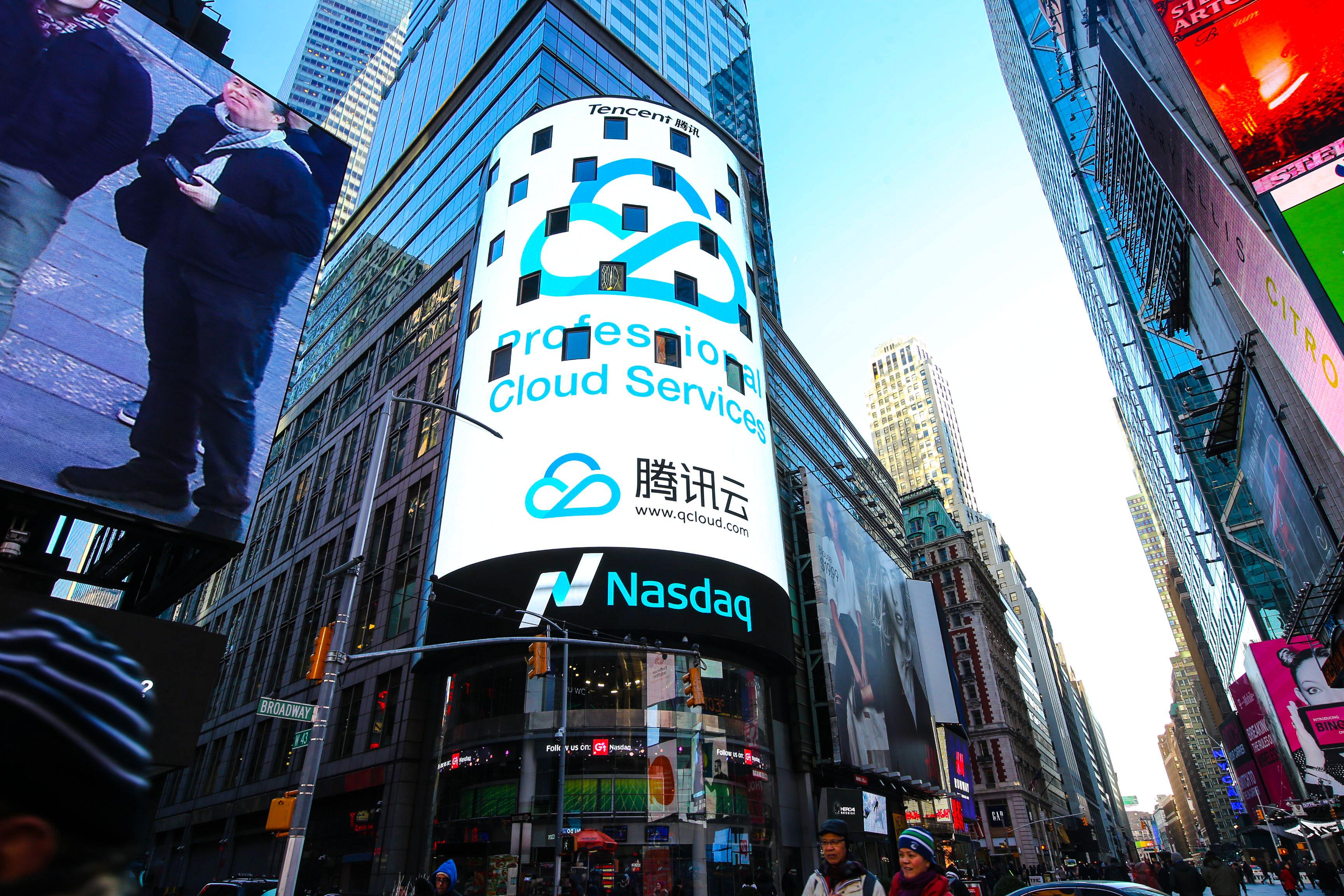
Chinese social and gaming giant Tencent – now the tenth largest company in the world – is ramping up expansion of its cloud business, which has so far lagged behind Alibaba, the market leader in China.
Tencent’s cloud services unit, Tencent Cloud, announced today the addition of five new overseas data centers in Frankfurt, Mumbai, Seoul, Moscow, and Silicon Valley, which officially opened yesterday. These new data centers will primarily serve cross-border customers, such as Chinese companies expanding abroad, as well as international companies looking to boost their business in China or other parts of the world.
New data centers will primarily serve cross-border customers.
“We want to enhance our overseas cloud capability to meet the rising demand from companies around the world as they look for fast, reliable, secure and cost-effective services during the global expansion and migration to the cloud era,” stated Rita Zeng, vice president at Tencent Cloud, in a press release.
Specifically, the company cites increasing demand from customers in the online games, live streaming, online finance, and video industries. Current clients from the mobile games industry include Netmable, Aiming, Gamevil, and Supercell, which Tencent acquired last year in a deal worth US$8.6 billion. Tencent Cloud also counts ride-hailing unicorn Didi Chuxing – another Tencent portfolio company – as one of its clients.
This year, Tencent’s cloud services arm also plans to offer cloud computing services to more traditional clients, such as those in manufacturing and the government. Last December, Tencent Cloud partnered with Sanyi Group Co. Ltd., one of China’s largest machinery equipment makers, to create a big data-powered platform that can detect malfunctions in real-time.
Currently, Tencent Cloud operates more than a dozen data centers in mainland China, and has data centers in Singapore, Toronto, and Hong Kong, on top of the new centers announced today. The company declined to disclose how many users it has or specific revenue numbers, only that the latter “tripled year-on-year in 2016.”
Slow start
Tencent’s cloud business started in 2013, almost half a decade after Alibaba Cloud, which launched in 2009 and forms the underlying infrastructure for Alibaba’s mammoth ecommerce business. Last year during Singles Day, China’s largest shopping holiday, Alibaba Cloud processed about 175,000 transactions and 120,000 payments per second during peak traffic.
See: The cloud computing magic behind Alibaba’s Singles Day
According to a report in 2016 by Deutsche Bank, Alibaba Cloud had an estimated 65 percent market share in China’s cloud service market at the end of 2015. Besides Tencent, other players in China’s cloud industry include Baidu and UCloud, as well as international providers Microsoft Azure and AWS – though their presence in China is relatively small.
However, the same report placed Tencent Cloud as second in China’s cloud service industry, estimating that it had more than 1 million customers. During last year’s Sort Benchmark, a global competition for computing, Tencent’s cloud computing unit broke a world record previously set by Alibaba Cloud by sorting 100 terabytes of data in 99 seconds.
The company has also been investing in artificial intelligence, albeit more discreetly than other domestic tech giants. In March, the company poached Tong Zhang from Baidu’s Big Data Lab to head up its own AI lab. That same month, Youtu Labs, Tencent’s image recognition-focused AI team, announced that it had achieved an accuracy of 99.8 percent – surpassing Google and Facebook – for Labeled Faces in the Wild, a popular facial recognition dataset.
This post Tencent ramps up cloud business with new overseas data centers appeared first on Tech in Asia.
from Tech in Asia https://www.techinasia.com/tencent-cloud-adds-five-overseas-data-centers
via IFTTT
No comments:
Post a Comment